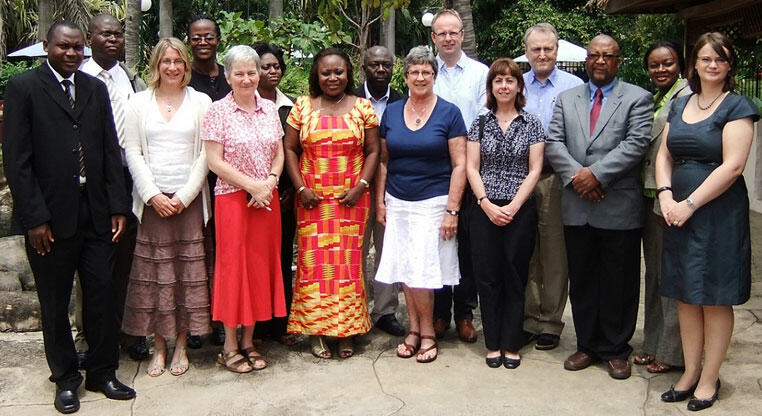
Blood transfusions are a critical part of modern healthcare everywhere in the world. Transfusions save millions of lives each year and in African countries, they are vital for women in childbirth and children and adults with severe anaemia. But the problem is this: in African countries blood transfusion policies and practice are mostly guided by evidence from Europe and America. What works in Western countries, does not always apply in Africa.
Africa’s blood transfusion professionals have a wealth of technical expertise but almost no research experience. Without research skills the service cannot produce the evidence needed to improve the safety and supply of blood for their people. Several European institutions have expertise in strengthening the research capacity of health services in Africa. The T-REC Project (Building research capacity of blood transfusion services in Africa) will coordinate inputs from EU and African academics to promote blood transfusion as an exciting and important topic for public health research and build expertise in transfusion research amongst health professionals. T-REC is led by the Liverpool School of Tropical Medicine (LSTM) and brings together key stakeholders in the African blood transfusion services including the Ghana Blood Transfusion Service and the National Blood Service Zimbabwe .
Unlike the situation in the UK blood transfusion in Africa are predominantly used for emergencies such as bleeding during childbirth or severe anaemia due to malaria. In African countries, unpredictable blood use, severe blood shortages and difficulties in reaching remote hospitals means that research generated in wealthy countries does not necessarily apply to transfusion services in Africa. If African countries are to improve their blood transfusion services they need to generate their own home-grown research.
“Although the need for blood is universal, in Africa and the developing world, the pattern of blood usage differs markedly from that of the Western World. It is important we have an evidence base to make sure we get our blood services right in Africa, not using things that have only been tried and tested in the Western world” said Dr Justina Ansah, Director of the Ghana Blood Transfusion Service.
Professor Imelda Bates from LSTM explained “Blood transfusion it is a hugely important issue for all health services and it is very expensive so we have to get it right. In Africa it has been neglected in terms of having evidence based practice”
-ends-
For further information, please contact
Imelda Bates, Professor of Tropical Haematology
Office: LSTM, Pembroke Place, Liverpool, L3 5QA –
Phone: 0151 705 3115
Email:ibates@liverpool.ac.uk
Notes to Editors
The Liverpool School of Tropical Medicine (LSTM) has been engaged in the fight against infectious, debilitating and disabling diseases for more than a hundred years and continues that tradition today with a research portfolio in excess of £190 million and a teaching programme attracting students from over 50 countries.